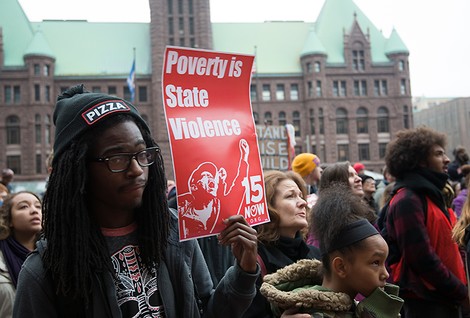Your podcast discovery platform
Curious minds select the most fascinating podcasts from around the world. Discover hand-piqd audio recommendations on your favorite topics.

piqer for: Boom and bust Global finds Globalization and politics
I am an anthropologist and political analyst interested in politics, economy and society in Africa and the West, from a global geopolitical perspective. I am a research fellow in the Department of Social Anthropology, University of Oslo, and a visiting researcher in the Centre for African Studies, University of Cape Town.
I have published widely in academic and professional publications and write regularly for international media such as Al Jazeera English, The Independent, Boston Review, openDemocracy and Africa Is A Country. I edit the Human Economy Blog.
Basic Income And Racial Justice: Antagonistic Security Versus Cooperative Security
Interest in universal basic income (UBI) is growing (see Piqd coverage here and here). An article by the Undercommons collective focuses on a neglected aspect: how to develop a UBI that satisfies the varied interests and needs of different groups of workers and communities separated along race, class, gender and other lines.
The emphasis here is on the struggle for racial justice in the United States, building on the inclusion of UBI in the Movement for Black Lives policy platform.
The economic system sets the interests of one group — in this case the white working and middle classes — against other groups, such as people of colour and migrants.
Measures specifically targeted at improving the lives of the first have created more discrimination for the latter. These forms of "antagonistic security" work against social justice. The article calls for cooperative security that produces broad-based solidarity across different segments of the population, taking into account their varied needs for economic and physical protection.
The version of basic income that best fits this goal is what the authors call a UBI+:
... a basic income that supplements existing or new welfare structures — “UBI+” — could radically redistribute security, remove incentives for the most pernicious forms of policing, and create the conditions for a more thorough overhaul of the current political system.
This is opposed to a UBI-, promoted in many policy circles as a wide-ranging replacement to existing welfare programmes, and a tool to further erode workers' rights and dump wages. UBI- would not only negatively affect workers, but also worsen the position of elderly and disabled people, among others, whose specific needs would be ignored by canceling all existing grants.
The article is a reminder that basic income plans do not fit into a coherent framework. Ideological and implementation principles differ significantly, making some proposals incompatible with each other.
Stay up to date – with a newsletter from your channel on Boom and bust.
